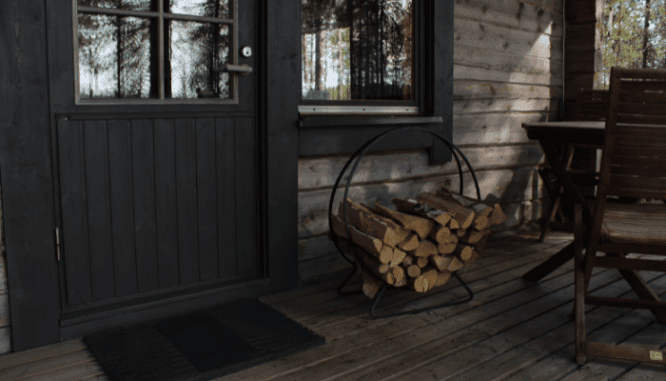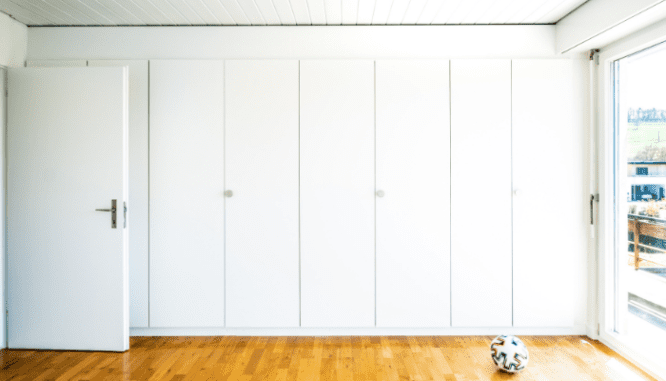Do I Need a Home Inspection, and How Long Does One Take, Anyway?
- Published on
- 4 min read
-
 Jody Ellis Contributing AuthorClose
Jody Ellis Contributing AuthorClose Jody Ellis Contributing Author
Jody Ellis Contributing AuthorJody Ellis is a freelance writer with more than 15 years of experience in the writing industry. Her work includes copywriting and content marketing for real estate professionals, stories covering real estate trends and housing markets, and varied articles on decor and design. In addition to buying and selling several homes herself, she's also owned and managed rental properties, and previously worked in mortgage lending.
At HomeLight, our vision is a world where every real estate transaction is simple, certain, and satisfying. Therefore, we promote strict editorial integrity in each of our posts.
You’ve found a house and had your offer accepted. Now it’s time to start moving through the process of finalizing the sale, which includes getting an inspection of the property.
While they aren’t necessarily required by your mortgage lender, a home inspection is an important part of your home purchase. As a buyer, you want to make sure you have a complete understanding of any outstanding maintenance issues with the property, existing damage, or other potential problems. And your agent will most likely recommend getting an inspection, even if you’ve already negotiated with the seller to waive repairs — just so you know exactly what you’re buying.
But how long will this inspection take? And what do inspectors actually look at during the inspection? Should you attend? When will you be able to review the report?
We’ve talked to experienced real estate agents and professional home inspectors to get some answers to these questions, as well as investigating the ins and outs of home inspections in general.
Let’s take a look at just how long a home inspection takes, what it involves, and what it really means for you as a buyer.

What is a home inspection?
A home inspection is a comprehensive assessment of the property’s condition, intended to determine whether or not it is in need of specific repairs. This includes not only maintenance, but also health and safety related issues that could affect the home’s value and the mortgage lender’s ability to grant a loan.
California real estate agent Bahareh Kamoei, who has more than 12 years of experience in the industry, says she always advises her buyers to get an inspection.
“In my years of practicing real estate, there have only been a handful of times I’ve had buyers decide against the inspection, and if they do, they must sign a waiver,” she says.
Not getting an inspection could mean discovering issues with the house after closing, which would leave you with no recourse if you wanted to try to negotiate repairs (or even back out of the deal completely!).
Who does the inspection?
The home inspection is conducted by a certified, professional inspector.
As the buyer, you can choose your own inspector, and your agent will often provide you with some options for reputable inspectors. If you do choose your own, you’ll want to make sure to vet them, which can be done by looking at online reviews, checking with your local Better Business Bureau, or looking them up via the American Society of Home Inspectors.
Kamoei stresses the importance of doing some footwork before deciding on one inspector. “We try to offer buyers at least three options,” she says “but there are a lot of inspectors out there, so buyers should do their research.”
Sean Garvey, CEO of Dwell Inspect home inspection services in Arizona, says that their process includes a focus on reviewing major health, safety, and habitability issues, with a full team on hand to tackle those homes that might require a more in-depth inspection. “We have a team of inspectors,” he says. “Any home over 4,500 square feet usually requires it.”
What specific items do they look at during the inspection, and how long will it take?
Garvey says that during the inspection, they will examine major items such as the HVAC, roof, electrical, and plumbing systems, as well as the overall condition of the home. “We don’t specifically inspect system to system,” he says, “but as we go through the whole process, it all kind of comes together at once.”
Inspection time for each item varies, and it often depends heavily on how well the house has been maintained.
“You could go into a newer house that has been neglected, or an older house could have no issues if the owners were diligent,” he explains. “If you go into a 20-year-old house, you might predict it will have a 20-year-old roof, but that’s not always the case.”
As far as estimating how long the entire inspection takes: again, it depends.
Homeinspectioninsider.com estimates that inspecting a 1,500-to-2,000-square-foot house takes between two and three hours, and buyers should add another 30 minutes for every additional 500 square feet.
However, Garvey says that a very large home could take much longer. “A standard residential house will take no less than 2.5 hours,” says Garvey. “A larger home that requires multiple inspectors could take all day.”
Kamoei agrees that two to three hours is fairly standard, but adds, “It depends on the size of the home and the amenities. The longest inspection I’ve been on was six hours.”
Extras like swimming pools, spas, or casitas can add time to the inspection, and the buyers may even want to get an additional inspection by a specialist.
“Inspectors are good at catching certain things,” says Kamoei, “and we can call in specialists to further investigate if they see potential issues.”
She adds that some buyers will hire a separate pool inspector, or bring out an HVAC or roof expert if the initial home inspection indicates problems.
“I think it’s a common misunderstanding, especially among first-time homebuyers, that they don’t realize they can inspect any aspect of the property,” she says, “and they can get additional inspections if they’re concerned about anything that comes up.
“You should look at the inspection like an overall checkup from your family doctor, and then you can go forward with specialists to further evaluate issues.”

Do I need to be there? Does my agent?
Kamoei says that she does offer her buyers the option of attending the inspection, with about a 50-50 average of how often they actually attend. But as an agent, she always attends, whether she represents the buyer or the seller.
“It can take hours, and not every buyer wants to, or can, be there,” she states. “But we make sure to attend every inspection.”
Garvey adds that buyers are always invited to attend the entire inspection, but in the market where he works, they usually arrive toward the end of the inspection, and then Garvey’s team provides them with a full summary review. “Some buyers will want to be there for the entire thing,” he says, “and we do encourage that as well.”
When will I see the report?
Even though the inspection itself can take hours, the report is usually generated quickly.
“We deliver reports on the same day as the inspection or shortly thereafter,” says Garvey. “We have refined our software and the templates we use to fit those needs.” While reports used to consist of big packets and instant photos, modern inspection reports are usually digital — and some, like Garvey’s company, even provide video footage of the inspection.
Because Garvey’s company has multiple inspectors available, he says that scheduling the inspection can happen almost right away, and they can sometimes even service people on the same day, although occasional bursts of business might push the inspection out by four or five days.
“Most people in Arizona have due diligence of no more than 10 days, which means that the inspection must be completed within that 10-day period,” he says, “but we aim for within 72 hours of initial contact.”
Once you have the report in hand, reviewing it might seem overwhelming, but this is where both the agent and inspector work together to make sure buyers understand what they’re reading.
“It’s important for buyers to recognize that they are going to be receiving a lot of information, all at once,” says Garvey. “They need to take time to digest that information and focus on those items of discovery that could affect safety. They should also ask a lot of questions of their inspector so they come away with a good understanding of the report.”
Garvey suggests that buyers go online and use available resources to look at the inspection process. “We have videos and links to blogs on our site,” he says, “and that can help people better understand how the inspection works.”
Garvey also explains that buyers should consider variables like the age of the home when it comes to the inspection, and their expectations should fall in line with the home’s age and general condition. An older home is likely to have at least a few issues or items that need repair, as opposed to a newer house that hasn’t experienced the same level of wear and tear.

Do I really even need a home inspection?
While some buyers might think a home inspection isn’t necessary, especially if they’ve already waived any contingencies, it’s probably not something you want to skip.
“Even if they are accepting the property in as-is condition, they should get an inspection,” says Kamoei.
Adds Garvey, “Buyers should look at the inspection as a resource to better understand the property they are buying and learn about their potential new home. In any market, it would be a pretty significant mistake to not do due diligence on what is often the largest investment of their lives.”
A professional real estate agent can help you schedule your home inspection, give you options on finding a good inspector, be there with you during the inspection, and guide you through the completed report. You’ll be armed with all the information you need on your new home — and as the saying goes, knowledge is power!
Header Image Source: (Logan Cameron / Unsplash)
